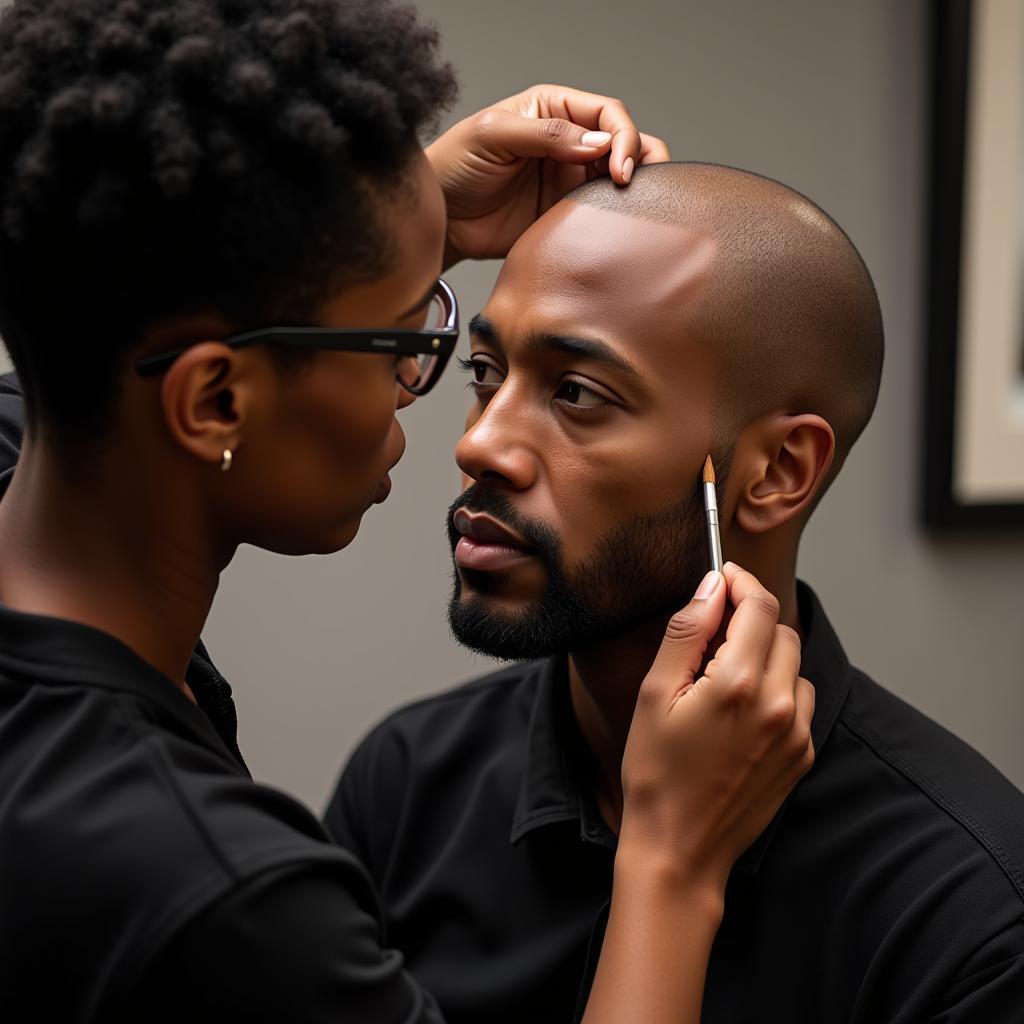5 Facts About African Culture That Will Blow Your Mind
African culture is often misunderstood and misrepresented. Contrary to popular belief, it’s not a monolithic entity but a vibrant tapestry woven from the traditions, languages, and beliefs of over 50 countries and thousands of ethnic groups. This incredible diversity makes it a continent brimming with fascinating stories, breathtaking art, and a spirit that reverberates across the globe. So, let’s delve into 5 Facts About African Culture that might just surprise you.
The Cradle of Humanity and Innovation
Africa holds the esteemed title of “Cradle of Humanity” for a reason. Archaeological evidence points towards the continent as the birthplace of our species, Homo sapiens, over 200,000 years ago. But did you know that this ancestral land is also a hotbed of ancient innovation? Long before the pyramids graced the Egyptian skyline, Africans were pioneering advancements in mathematics, astronomy, and medicine. From the intricate calendar systems of ancient Egypt to the sophisticated surgical practices in ancient Nubia, Africa’s contribution to human knowledge is both profound and often overlooked.
A Continent of Linguistic Diversity
Africa boasts an astounding linguistic landscape. With over 2,000 spoken languages, it represents a third of the world’s linguistic diversity. This linguistic richness stems from the continent’s long and complex history, shaped by migration, trade, and cultural exchange. From the click consonants of the Khoisan languages in Southern Africa to the tonal variations of the Niger-Congo languages, the sheer variety of sounds and grammatical structures is a testament to the continent’s cultural vibrancy.
More Than Just Music: The Power of Rhythm
When you think of African music, what comes to mind? Perhaps images of vibrant dances and pulsating drumbeats. While music is an integral part of everyday life in Africa, its significance runs much deeper than mere entertainment. It acts as a powerful tool for storytelling, preserving history, and transmitting knowledge across generations. For example, in West Africa, talking drums were traditionally used to send messages over long distances, mimicking the tones and rhythms of spoken language.
Ubuntu: A Philosophy of Interconnectedness
“Ubuntu” is a Nguni Bantu term that encapsulates a powerful philosophy deeply ingrained in many African cultures. It speaks to the interconnectedness of humanity, emphasizing compassion, respect, and the belief that our individual well-being is inextricably linked to the well-being of others. Archbishop Desmond Tutu, a prominent South African anti-apartheid activist, famously described Ubuntu as “the essence of being human.” It’s a reminder that in a world often driven by individualism, African cultures offer a valuable perspective on community, empathy, and shared humanity.
The Art of Storytelling: Where Oral Traditions Thrive
In many African cultures, the art of storytelling transcends mere entertainment; it’s a sacred practice passed down through generations. Griots, the esteemed storytellers of West Africa, play a vital role as historians, advisors, and keepers of cultural memory. Through song, music, and spoken word, they weave captivating narratives that educate, entertain, and connect communities to their past. From epic tales of ancient heroes to cautionary fables passed down through generations, African storytelling offers a glimpse into the heart and soul of the continent.
African Culture: A Tapestry of Diversity
These 5 facts offer just a glimpse into the rich tapestry of African culture. From its ancient roots as the cradle of humanity to its vibrant languages, music, and traditions, Africa is a continent that continues to inspire and challenge perceptions. As we move forward, let’s approach African culture with curiosity and respect, celebrating its diversity and recognizing its invaluable contributions to our shared human story.
FAQ
1. What is the most spoken language in Africa?
While Africa boasts a vast array of languages, Arabic holds the title of the most spoken language on the continent, followed by Swahili and Hausa.
2. What are some famous African art forms?
African art is incredibly diverse, ranging from intricate beadwork and textiles to stunning sculptures and masks. Some well-known art forms include Nok terracotta sculptures from Nigeria, the Benin Bronzes, and the colorful Ndebele house painting tradition in South Africa.
3. What is the significance of family in African culture?
Family plays a central role in African societies, often extending beyond the immediate nuclear family. Elders are deeply respected, and community support is highly valued.
4. Are there any misconceptions about African culture you would like to address?
One common misconception is that Africa is a homogenous entity. It’s crucial to remember that Africa is a vast continent with diverse cultures, languages, and traditions. Generalizations often fail to capture the richness and complexity of its people and their ways of life.
Explore More About the Magic of Africa
Interested in diving deeper into the wonders of African culture? Check out these fascinating articles:
Remember, this is just the beginning of your journey into the heart of Africa. There are countless stories waiting to be discovered, traditions to be explored, and connections to be made.
Need Assistance?
Contact us 24/7 at +255768904061 or [email protected]. We are located at Mbarali DC Mawindi, Kangaga, Tanzania. Our dedicated customer support team is here to help!


